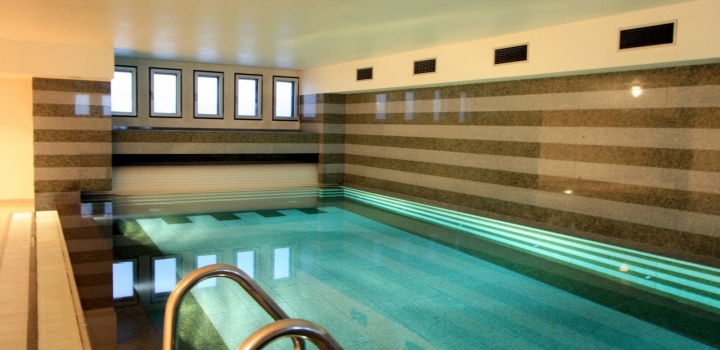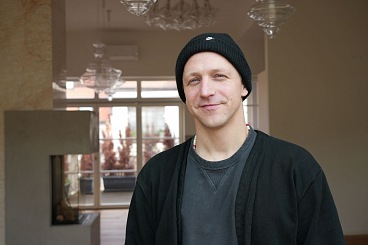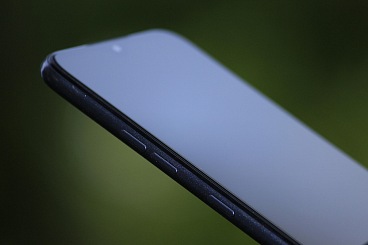Fast confession – an expert in etiquette talks to us about the faux pas of Prince William, the Duchess of Cambridge and Czech politicians
Interview with an expert in etiquette about the faux pas and merits of famous people.
She started to devote herself fully to etiquette in 1994 and Eva Filipová is now nicknamed “the First Lady of Etiquette”. Having originally studied as a physiotherapist, Eva has made it to the very top of the social ladder. However, apart from etiquette, she also devotes her time to cooking and publishing cookery books. Despite having her hands full with publication of the book “Etiquette with charm”, she found time for an interview with Luxury Prague Life, where she talked not only about the positive aspects of the world’s elite, but also about the failings of certain Hollywood celebrities and several Czech politicians...
When did you start fully devoting your time to etiquette?
First of all, I surrounded myself with a wonderful team of people who were all experts in their field and started organising courses for women. I had specialists for styling, healthy eating, a psychologist and a psychiatrist etc. I managed to get a team of leading experts together. The course lasted three days and was probably the first of its kind in the Czech Republic. It was held at the former Hotel Fórum Praha. We were sometimes truly surprised ourselves as to how those women were transformed into completely different people over the course of those three days. Women would often come in from the countryside quiet as mice, some had low self-confidence, others had marital problems... They underwent, I would say, quite demanding “training” for three whole days from morning until night. Then afterwards, they left with an incredible level of self-confidence. But women also signed up for the course who looked so good that I asked myself why they had in fact even signed up.
I then received letters from them which made me happy. Letters saying how I had saved their marriage and things like that. That was just great. It was a success. On the basis of those courses, I then received an offer from a newspaper asking whether I could write a Saturday column about etiquette. That was the Telegraph daily back then. I accepted the offer and have been writing ever since.
Where did you get into that field? And above all – where did you learn all that yourself?
I married a hotelier. My husband was the managing director of an international hotel and president of the National Federation of Hotels and Restaurants. Before that, I worked in the Clinic of Rehabilitation Medicine in Vinohrady. I lived a completely different life, didn’t mix in society, so I myself had problems at times. I had to learn a lot. I had a good foundation from my family, but sometimes you need to know more, a lot more. My husband was very strict, demanding that I be by his side and I very often acted as hostess. I travelled around the world with him, I say that I supported him (laughs), so I had to learn everything until it was second nature. I also studied at the International School of Aesthetics in New York and learned things wherever I was able. And when I watched people in social situations, I noticed that they usually had the problems that I had. Because uncertainty always exhibits itself and you really can see that.
Was that not to do with the era?
No, women still have those problems! (laughs) That wasn’t to do with the era, things don’t change much. There are certain rules of etiquette in every era and these are a given. They absolutely must be followed. When I saw how women are sometimes uncertain in a social setting the same as I was, I had the idea of writing a short book on etiquette so I wrote “Social Help”. It was a short book. People I knew came up to me and asked why I hadn’t written more .... So that was how it all started.
How is it possible that when I hear the word “etiquette”, I think of Ladislav Špaček and not you despite the fact that you have been doing this for so long?
Mr Špaček probably started writing about etiquette later than me because he was working for Václav Havel at that time. As his spokesman, Mr Špaček was of course very visible on television and thanks to that, his career as a master of etiquette got off to a good start.
You say that the rules of etiquette apply in every era, but I get the impression that nobody follows them, that era we live in today is too relaxed.
Definitely. Etiquette has of course changed. I even no longer really like turning to Guth Jarkovský as a lot has changed since his time. Everything has of course relaxed, but the foundations of etiquette will always be the same – i.e. decency, courtesy, honesty and good manners. That has not changed, that will always hold true whatever the era and whatever the regime. But the dress code has relaxed, that has relaxed immensely and also the way in which we eat. People have started using their knife in places where it was not used before, there are new technologies. There weren’t any mobile telephones in the past so new rules had to be created. The basis of etiquette, good manners will however always apply. People don’t like aggressive people, louts, they don’t like it if someone doesn’t have any table manners. Nobody wants to sit at a table with someone who burps at the table and does other things, because our European culture is simply like that. Certain former rules are sometimes amusing, almost comical thanks to how the times have changed.
Which ones?
The standing of women in society has changed a lot. For example, women were not able to go to a hotel alone in the past. That was something quite unimaginable. It is probably the dress code which has relaxed the most. For example, rules were strict in hotels. During the day, a lounge suit with long trousers was sufficient, but it was necessary to change for the evening in every good hotel. Only into a dinner jacket in large hotels. Short trousers and “hiking socks” as they were called belonged in the mountains and nowhere else. Swimming costumes were suitable only for time spent by the lake or for water sports. Women always wore hats in the city. A grand outfit was necessary for large premieres or a trip to the opera. A lady always had to have an evening cloak. A man was only able to carry a handkerchief in the pocket of his coat or trousers. He could only tuck a clean decorative handkerchief into the outside breast pocket and this had its rules too. Handkerchiefs with a coloured edge were not worn to go with a dress suit. Handkerchiefs with lace were not permissible. Dining demanded strict compliance with the rules. Correct use of cutlery was a must. Dumplings, gnocchi and similar side dishes were not cut with the knife but with the fork in the left hand. And many other things...
I think that there really are a lot of people who don’t know how to behave.
Each generation complains about that. It is true that it sometimes seems that way. I sometimes get the feeling that people say they can go places dressed as they like, that they don’t have to follow the prescribed dress code when the situation so requires. But then it should come as no surprise to them that people think they are an idiot. Whenever it is specified anywhere on an invitation or on a restaurant’s website, you must always accommodate the host’s wishes. If the dress code is “black tie”, which means a bow tie, then that person is absolutely obliged to put on a bow tie, and a black one at that, not any other colour because that is just laughable. And that will always be the case.
You have written several books on etiquette.
My last one which was christened at the end of November, Etiquette with charm, was my fourth. I have already written seven about cooking.
How did those cookery books get in there?
I really enjoy food. Thanks to my husband’s work, I was always at source for etiquette and amazing gastronomy. I travelled to a lot of countries with him and visited the best restaurants. When we participated in global congresses or stayed in hotels operated by the Intercontinental group and other hotel chains, the chefs were always of the very highest calibre. Thanks to this, I was always at source for wonderful food. I was able to talk to the chefs, be with them in the kitchens and learn from them. I really enjoy eating and cooking, that really is my big hobby.
I was on holiday once and I remember it as if it were yesterday. I saw a beautiful cookery book there and I said to myself that I would also write a beautiful cookery book when I got home. Notice how there was always a picture of duck, six dumplings, cabbage and an overflowing plate on the cover of all cookery books for Czech cuisine. That irritated me because I felt that Czech cuisine deserves to be presented nicely. In addition to that, I knew chefs in the Czech Republic who were superb, who cooked sensationally and whose gastronomy was on a very high level. So, I got together some Czech cuisine on a lighter note in a modern style. Gastronomy and etiquette are very intertwined. One cannot exist without the other and I always say that the most difficult chapter of etiquette is how to behave at the table.
That is why I am always nervous when we are together. (laughs)
No! You don’t need to be, because I never tell people what to do as that would be the greatest breach of etiquette. If somebody asks me, I am happy to help, but I would never try to tell someone how to act of my own accord. The most important thing is that if there is something you don’t know, you should not be afraid to ask. You should not try to pretend you know everything because anyone who has mastered etiquette will soon know that it is not true anyway. If I am sitting at the table with somebody, I know within a few minutes where they stand with the rules of etiquette. The most important thing is to act nicely and naturally and not to pretend you are somebody you are not, then everyone will forgive you whatever you do.
You can forgive mere mortals, but not those people you for example see on television, not them. Do you see any failings there?
I do. But I would start with one of the better ones. I think for example for the generation of young people today, a wonderful example is set by the Duchess of Cambridge, Prince William’s wife. She dresses really well, distinguishes between the situations and occasions she will find herself in. She presents herself wonderfully and has natural charm. Of course she has an advisor, but I can see that she above all has it in her. I like her. Not every stylist manages to catch everything. She has a feeling for things and style and I regard that as the most important thing. She is able to make really good choices from the offer herself and is an example of what a young lady should be like. She is modern and nice in terms of her behaviour. I have not yet registered anything about her that bothers me. She always has the right length of dress, trousers or skirt. She wears great designs which suit her figure. Even if she had the best stylist in the world, she knows how to tinker with things herself.
What about her husband?
Men have the great advantage that if they have a good tailor, a suit always suits them. After that there is not much they can ruin. If they want to look good, they wear a tie, if it is a black-tie affair, a bow tie must be worn and Prince William always gets a sensational suit and is always well-dressed during his leisure time too. I think that Kate also likes to give him advice. It seems to me that women are also very good at shaping what men wear. As they say, behind every great man is a great woman. A clever woman is always able to provide advice if she happens not to like what her husband is wearing.
And what about the worse behaviour?
I for example regard the behaviour of the producer Weinstein as nauseating and manipulative. He produced several extremely successful films with his brother including Shakespeare in Love, the King’s Speech, Frida and the English Patient. An example of how strong power and fear are, if you don’t do what is expected of you, that is sexual harassment in the true sense of the word. A lot of women and actresses who worked with him have spoken up. Even Kate Winslet. She criticised his behaviour, saying it was not possible to get along with him and that he was very unpleasant. She is allegedly not even prepared to speak publicly about certain things despite the fact that it was not straightforward sexual harassment in her case.
And if we look at our political scene?
I have a lot of reservations about that... Our politicians don’t do anything at all to ensure that they look presentable, the way a public functionary should look. Sometimes it really is pathetic how they present themselves. For example, a basic thing is that their hair should be washed. Not to mention the fact that men should have a nice haircut and trimmed beard. The trend of having beards and moustaches has returned. But men should be well-groomed. I am however even willing to forgive that, but not unwashed hair. Not to mention their behaviour. By that I mean vulgar expressions, haughtiness and arrogance of speech.
What then do you have to say about Ivan Bartoš or Vladimír Franz who was a presidential candidate?
That is a person’s calling card. If a person decides to enter public life, this also comes with certain obligations and one of them is to represent our country in a good light. And one’s overall appearance is undoubtedly part and parcel of that. Neither dreadlocks nor tattoos are a standard feature there. Mr Bartoš is true to the name of the part by looking a little like a pirate. Something I rate in a positive light with him is always his suit and there is not much to criticise about that. He has cut his hair a little, but I certainly don’t think his look is ideal.
But there is nothing else you can do about that than to shave it off.
I suppose not. I absolutely understand that this is his image, an effort to distinguish himself, but I think that he will probably change his mind about that himself in time...
Some might say that all of these clothes are an expensive affair.
I don’t agree with that. A person with taste is even able to clothe himself at no great cost. And what is more, contemporary fashion involves a lot of combination – old and new, designer and no-name clothing, cheap and expensive. It is not written anywhere that a person has to be wrapped from head to toe in designer clothing. Some people dress in clothing worth hundreds of thousands of crowns and still don’t look good. It is again about taste and style and the art of knowing how to do it.
What are Czechs like in that respect as compared to the rest of the world?
I think that Czech women, men being no exception, are very interested in looking good just like everywhere else in the world. In addition to that, Czech women are mostly beautiful. They are interested in fashion and dress nicely. It is a pity that they sometimes let themselves down in the details.
Which ones?
They may for example be well-coordinated, but then they put on the wrong tights. Thick nude tights, a detail like that. Although these are minor points, they are decisive. If we have to wear tights, then the thinnest ones possible, ones which are not shiny and are invisible.
What do you say to wearing sandals with socks?
I don’t think we will ever rid ourselves of that. I already call that an aberrance these days.
But their response to that is that they are wearing socks so they don’t get blisters or so that their feet don’t slip in their sandals.
There is a solution for everything. Even orthopaedic shoes can look good. Or they can wear long trousers. In addition to that, sandals are not at all desirable and the same goes for shorts. If a man wants to wear shorts, he has to think it through. They are suitable for the beach or to go to the pub for a beer, but not for having dinner in a restaurant.
But we are not a disgrace to the world, are we?
No, certainly not. But it is a pity when we style ourselves into something which doesn’t suit us. Everyone should create their own style and stick to it. They should aim to feel good, because then they act naturally. That goes hand in hand.
















